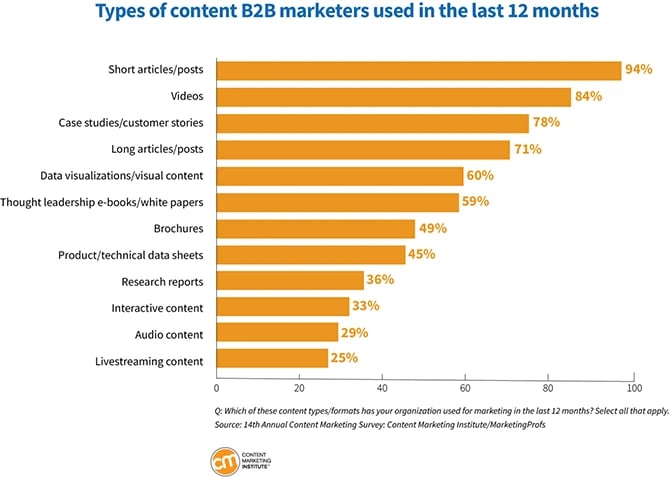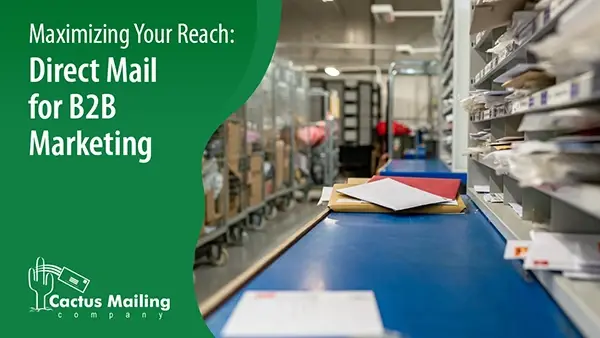We Are Here to Help!
Get pricing details and strategies that will work for your business.
Mastering social media strategies is crucial in capturing and engaging professional audiences. It extends beyond mere content posting; the methods are intricately woven plans that align with a B2B company's core business goals and meticulously cater to the specific needs of a professional target audience. Integrating social proof in these strategies can significantly enhance credibility and trust among professional audiences.
Effective B2B social media marketing is about creating a dynamic two-way interaction that transcends traditional advertising, establishing a brand as a thought leader and trusted advisor in its industry. Let's discuss how B2B social media marketing can transform platforms into powerful vehicles for brand awareness, community building, lead generation, and fostering enduring professional relationships, ultimately driving substantial business growth in a digital-first world.
Social Media for B2B Marketing to Capture Professional Audiences
B2B social media platforms have transcended beyond mere channels for online networking. They have become pivotal tools for business growth, brand building, and professional networking. As the marketplace evolves, these platforms offer unique opportunities for businesses to engage with their target audience, showcase thought leadership, and drive meaningful conversations within their industry. The power of social media in the B2B sector lies in its ability to connect professionals across the globe and its capacity to foster partnerships, generate valuable leads, and create a community around shared business interests and goals.
Professional and Engaging Profile
A professional and engaging social media profile or page for B2B marketing is an ongoing effort. Building and maintaining a strong online presence requires continuous optimization, creativity, and engagement.
- Profile Picture: Use a high-quality logo that is easily recognizable. Ensure the logo is centered and fits well within the profile picture space without any important elements being cropped out.
- Banner Image: Select a cover image that is visually appealing and aligns with your brand’s aesthetic, values, and services. It could be an image that showcases your products, a collage representing various services, or a creative graphic that conveys your brand's mission. Ensure dimensions are right for the platform to prevent important details from being cut off.
- Bio/Description: Write a concise, engaging bio or description that clearly states what your business does and its unique value proposition. Include keywords relevant to your industry to improve SEO and help your profile appear in relevant searches. For instance, if you’re a digital marketing agency, keywords could include “digital marketing,” “SEO,” “content creation,” and so on.
- Contact Information: Provide comprehensive and up-to-date contact details. Include your business’s website URL, a professional email address, and a phone number. For platforms that allow it, add other relevant information such as location, operating hours, and links to other social media profiles.

Regular and Relevant Multimedia Content
Regularly producing relevant multimedia content tailored to the specific needs and interests of both B2B buyers and marketers is crucial. Integrating the practice of social selling into this B2B content strategy enhances direct engagement with potential clients on social platforms, further driving B2B sales and growth. By leveraging various types of content and adhering to best practices, a B2B company can drive sales and growth.
Here's an illustration of how to effectively utilize regular and relevant multimedia content for B2B social media marketing:
- Consistency and Planning: Maintain a regular posting schedule. Use social media management tools like Hootsuite or Buffer to create a content calendar to plan and ensure a steady flow of diverse content.
- Audience Segmentation: Create more targeted content by understanding the specific needs and interests of B2B buyer and B2B marketer.
- Quality over Quantity: Focus on creating high-quality, valuable content rather than a high quantity of mediocre content.
- Feedback and Adaptation: Monitor feedback and engagement to understand what works. Be prepared to adapt your content strategy based on this feedback.
- Leveraging Social Media Features: Utilize the unique features of each platform, like LinkedIn's professional focus for B2B buyers or Twitter's quick-update style for trend-based content for marketers.
Types of Multimedia Content
Engaging a professional target audience requires aligning your B2B social media strategy with effective content types. Several recent studies indicate the importance of using short articles, videos, and case studies/customer stories in a comprehensive approach.
- Videos: A versatile tool for both buyers and marketers. For buyers, product demos and tutorials are valuable. For marketers, brand storytelling and industry insights videos can be more appealing.
- Infographics and Visual Data: Effective for presenting complex data in an easily digestible format. It is useful for buyers looking for quick insights and marketers seeking to present data-driven arguments.
- Podcasts and Webinars: Serve as a platform for in-depth discussions. For buyers, webinars can provide detailed product information. For marketers, podcasts on marketing strategies and innovations are beneficial.
- Interactive Content Marketing: Includes quizzes, surveys, and assessments. For buyers, these can be tools for self-evaluation or needs assessment. Marketers can use them to generate engagement and collect data.

Graph from Content Marketing Institute
Targeted Advertising
Targeted advertising across various platforms offers unique benefits and strategies. Each platform may also cater to specific aspects of B2B marketing, from professional networking and precise demographic targeting to engaging video content and niche community outreach, demonstrating the diversity and adaptability of digital advertising strategies in reaching and influencing B2B audiences. Here's what each platform is capable of:
- LinkedIn excels in professional targeting, offering ads based on job titles and industries, ideal for reaching decision-makers. It also provides targeted solutions for lead generation. Sponsored content, direct sponsored content, text ads, and InMail campaigns can be tailored to reach a specific audience.
- Twitter focuses on keyword and interest targeting, which is perfect for engaging specific demographics with concise messaging.
- Facebook Ads leverages its extensive user base to allow highly targeted campaigns to specific professional demographics, industries, and job titles. It is an effective tool for B2B lead generation and brand promotion.
- YouTube, as a major search engine, provides video-based advertising opportunities, targeting viewers by interests and behaviors, which is effective for in-depth content delivery.
- Google Ads plays a critical role in a B2B marketing strategy, leveraging search engine queries to target potential business clients. With the ability to target specific keywords and phrases, Google Ads can be precisely tailored to capture the attention of professionals actively seeking solutions or information relevant to your industry.
Integration with Other Platforms
In B2B marketing, integrating social media with other digital channels like websites, email marketing, and CRM systems is essential for strategic synchronization. This approach creates a cohesive and seamless user experience and helps with social proof through consistent messaging across all platforms. Such integration is key to leveraging data across various platforms and crafting more effective marketing strategies.
- Consistent branding will maintain a uniform B2B brand and message across all channels for brand recognition and trust.
- Cross-platform analytics to gain insights from social media and other channels to tailor marketing strategies.
- Automate content management for consistent and efficient content posting across social media.
- CRM integration to track customer interactions and tailor communications.
- Lead generation for directing traffic to websites or landing pages.
- Content syndication by scheduling a blog post or conducting webinars on social media to boost visibility and establish industry thought leadership.
- Email integration cross-promotes between email marketing and social media to grow follower and subscriber bases.
- Customer service enhancement for responsive customer service, integrating with existing support tools.
- E-commerce links to drive online store traffic and facilitate sales.
- Employee advocacy to share company content on personal social media to extend reach and add authenticity.
Using Analytics Tools
Analytics play a vital role in B2B social media marketing, offering insights for data-driven decisions. Effective use of analytics is crucial in B2B social media marketing for understanding target audience behavior, optimizing content, and improving overall strategy. Regular analysis and adjustments based on data insights are key to enhancing engagement and conversion. The strategy involves:
- Using a combination of tools, native analytics (LinkedIn Analytics, Facebook Insights, and YouTube Analytics) and third-party platforms (Google Analytics, Hootsuite, or Sprout Social) can give you a comprehensive view of your social media performance. While native tools provide basic and platform-specific metrics, third-party tools can offer additional insights, comparative data, and more integrated analytics experiences.
- Defining and monitoring key performance indicators (KPIs) such as lead generation, click-through, engagement, and conversion rates. Regularly monitor these metrics to assess content effectiveness and platform performance.
- Data segmentation and competitor analysis for specific demographics, industries, or behaviors for targeted marketing. Monitor competitors' social media activities to benchmark and identify opportunities.
- Reporting, A/B Testing, and CRM Integration: Produce regular reports focusing on actionable insights. Employ A/B testing for content and social media campaign optimization. Integrate analytics with your CRM for a comprehensive view of the customer journey and social media's impact on conversions.
- Making actionable adjustments from analytics to fine-tune your social media strategy. Adjust content types, posting schedules, and advertising expenditures to optimize effectiveness.

Identify the best social media platforms where your B2B audience is most active and leverage them to achieve your B2B marketing goals. LinkedIn, for instance, is essential for a B2B social media strategy. Still, platforms like Facebook, Instagram, X (formerly Twitter), YouTube, or even TikTok and Slack could be valuable depending on your industry. According to the Content Marketing Institute, these are the top three platforms:
Platform #1: LinkedIn
LinkedIn is the undisputed leader in B2B marketing among social media platforms, underscored by compelling data and statistics. With 93% of B2B marketers incorporating social media content as a fundamental part of their strategy, LinkedIn emerges as the most effective platform. This dominance is further highlighted by the fact that 84% of B2B executives turn to social media when purchasing, with LinkedIn often being their go-to source. Moreover, a staggering 4 in 5 B2B leads derived from social media are sourced through LinkedIn, showcasing its unparalleled efficacy in the B2B sector. The social media platform's tailored environment for professional networking and content sharing and its sophisticated targeting capabilities make it a fertile ground for lead generation, brand building, and establishing thought leadership.
- LinkedIn Pulse: Writing articles on LinkedIn Pulse allows professionals to showcase their expertise to a wider audience. Well-crafted articles can attract potential leads by highlighting a professional’s knowledge and insights.
- LinkedIn InMail: Utilizing InMail for targeted, personalized outreach to potential leads or influential figures in their industry is a common strategy. InMail allows reaching out to contacts not in one's direct social network.
- Endorsements and Recommendations: Giving and receiving endorsements and recommendations enhance credibility. A profile with numerous endorsements for key skills and robust recommendations is more likely to attract potential leads.
- Using LinkedIn’s Advanced Search: Professionals use LinkedIn’s advanced search feature to find and connect with potential leads. This tool allows filtering searches by location, industry, company, and experience.
Platform #2: Facebook
Facebook, renowned for its versatility and widespread use, presents unparalleled opportunities for B2B businesses to expand their professional network and establish industry authority in the social media network. As a powerful social media channel for business development and fostering community engagement, Facebook enables B2B companies to:
- Creating Own Groups for Niche Communities: A B2B organization can create and manage a Facebook group centered around specific topics or industries.
- Facebook Live and Events: A B2B business can engage with an audience in real-time by utilizing Facebook Live sessions and online events. These platforms are ideal for product demos, expert discussions, and industry updates.
- Networking via Comments and Likes: Actively commenting on and liking on a Facebook group or posts by peers, industry leaders, and potential leads is a subtle way of networking, increasing visibility, and fostering relationships in a non-intrusive manner.
Social Media Examiner is your guide to social media for B2B marketing. Check out the marketing conference they organized and the wide range of services they offer.
Platform #3: YouTube
YouTube is a pivotal social platform in the B2B realm. Isoline reports that over half of B2B buyers regard video content as valuable. YouTube, a multimedia-rich platform, offers a fertile ground for professionals seeking innovative ways to engage in networking and lead generation. It emerges as a content-sharing platform and a vital tool for B2B networking, relationship building, and lead generation.
- Networking through Collaborations: Collaborating with other YouTubers, industry experts, or influencers can expand a professional or social network.
- Utilizing Calls to Action (CTAs): Including effective CTAs in videos and video descriptions can direct viewers to a website, social media profile, or contact form. A CTA encourages viewers to take the next step in the lead generation process.
- Live Streaming: Hosting live streams for product launches, Q&A sessions, or industry discussions can be a powerful tool for real-time engagement.

Conclusion
Your B2B business must create a dynamic and engaging social media presence that highlights your brand’s expertise, fosters engagement, builds brand awareness, and drives traffic to your website or resources.
By leveraging the strengths of each platform, businesses can improve their customer engagement, enhance brand visibility, and ultimately translate their social selling efforts into more sales and growth.
Effective integration of a social channel with other platforms in B2B marketing is not just about expanding reach but also about creating a more personalized, data-driven, and cohesive B2B marketing strategy.
Our postcards have helped various businesses get leads, boost brand awareness, and grow revenue. Let us help you create a marketing postcard design to achieve your goals!
Start your postcard journey with us today!

 Cactus Mail Team: Apr 22, 2024
Cactus Mail Team: Apr 22, 2024



 Jill Brown
Jill Brown